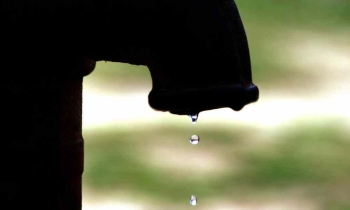There is a rising tide of harassment of journalists and women’s rights activists in Iran by security officials.

The most recent and shocking incident occurred on January 26 this year when 15 women journalists were detained for questioning by Ministry of Intelligence officials as they were about to fly out from Tehran to attend an educational workshop on journalism in India. Twelve of the women were freed after several hours but warned that they should not attend the training or they could face unspecified consequences on their return to Iran, Amnesty International had said.
Three others – Farnaz Seyfi, Mansoureh Shojaie and Tala’at Taghiniya – were taken to Evin Prison, run by the ministry, and held for 24 hours before being released. They are now are reported to be facing trial in April, charged with "acting against state security" on account of their planned participation in the workshop. While they were detained, security officials searched their homes and removed personal effects, including computers and notebooks, and since their release they have been prevented from working.
Amnesty called on Iranian authorities to drop the charges against the three women journalists and to cease harassing them for pursuing peacefully their internationally recognised right to freedom of expression. If any of the three were to be imprisoned solely on the basis of such charges Amnesty International would consider them prisoners of conscience and would call for their immediate and unconditional release.
Farnaz Seyfi, 23, is a freelance journalist who has written for the women's rights news and information website Zanestan (herlandmag.com). Her own blog is located at farnaaz.com. Mansoureh Shojaie, 48, writes in-depth articles, while Tala’at Taghiniya, 61, has been active in the women’s movement for over 30 years. She has written for Zanestan and Shahrzad News (shahrzadnews.org), a Persian-language news agency based in the Netherlands.
All three women are members of the Iranian Women’s Cultural Centre, which runs the Zanestan website and which has organised events promoting women’s rights, including a demonstration in June 2006 calling for an end to legalised discrimination against women, which was violently dispersed by the security forces who arrested dozens of participants. The Centre has also founded a library for women.
The journalists planned to travel to India to take part in a training workshop run by Shahrzad News. The training would have covered areas such as how to arrange a press conference and the differences between traditional media and the Internet.

In another case, journalist Zhila Bani Ya'qoub was acquitted on February 4 on charges that included "acting against state security" which arose from her participation in a demonstration in support of women's rights.
Amnesty International has repeatedly expressed its concern over the harassment of human rights defenders, including many journalists. Such harassment includes travel restrictions, both within Iran and on leaving the country. Others have been interrogated and threatened after their return from travel abroad.
Other recent incidents of harassment of journalists and women’s rights defenders, include:
- A group of over 20 journalists, who attended a training seminar in November 2006 in the Netherlands, were detained on their return to Iran and interrogated for three hours at Mehrabad airport in Tehran by security officials, who also confiscated personal property, before being released.
- Ali Farahbakhsh, a journalist with the now-banned daily newspapers, Yas-e No and Sharq, was detained on November 27, 2006 following his attendance at a conference in Thailand which dealt with the media. He is reportedly held in Evin Prison.
Amnesty International expressed concern that the restrictions imposed by the Iranian authorities went far beyond what is permissible under international human rights law. Amnesty urged them to lift travel restrictions imposed on anyone solely in connection with the peaceful exercise of their right to freedom of expression and association. Amnesty International also urged Iran to adopt all legislative, administrative and other steps as may be necessary to ensure the rights and freedoms for the defence of human rights as set out in the UN Declaration on Human Rights Defenders (1998).









